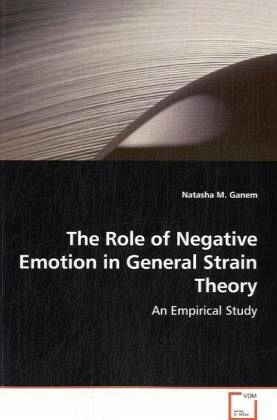
The Role of Negative Emotion in General Strain Theory
An Empirical Study
Versandkostenfrei!
Versandfertig in 6-10 Tagen
32,99 €
inkl. MwSt.

PAYBACK Punkte
16 °P sammeln!
General Strain Theory (GST) argues that strain leadsto negative emotion and that negative emotion leadsto criminal behavior. Though GST has received asignificant amount of empirical support, past testsof GST have focused primarily on the relationshipbetween stress, anger, and interpersonal aggression.This book expands this research by investigating moreemotions, more behaviors, and differences acrossgender. Literature from the social psychology ofemotion is used to develop hypotheses which aretested through a vignette study. Results indicatethat certain situations produce certain emotions more...
General Strain Theory (GST) argues that strain leadsto negative emotion and that negative emotion leadsto criminal behavior. Though GST has received asignificant amount of empirical support, past testsof GST have focused primarily on the relationshipbetween stress, anger, and interpersonal aggression.This book expands this research by investigating moreemotions, more behaviors, and differences acrossgender. Literature from the social psychology ofemotion is used to develop hypotheses which aretested through a vignette study. Results indicatethat certain situations produce certain emotions moreso than others, but that negative emotions oftenco-occur. Some negative emotions precipitate criminalinvolvement, while others inhibit criminaltendencies. Results also suggest that genderdifferences in emotional reactions to strain are keyin understanding gender differences in criminalbehavior. This analysis sheds light on the genderedrole of negative emotion in GST and should be usefulto those interested in criminological theory.












